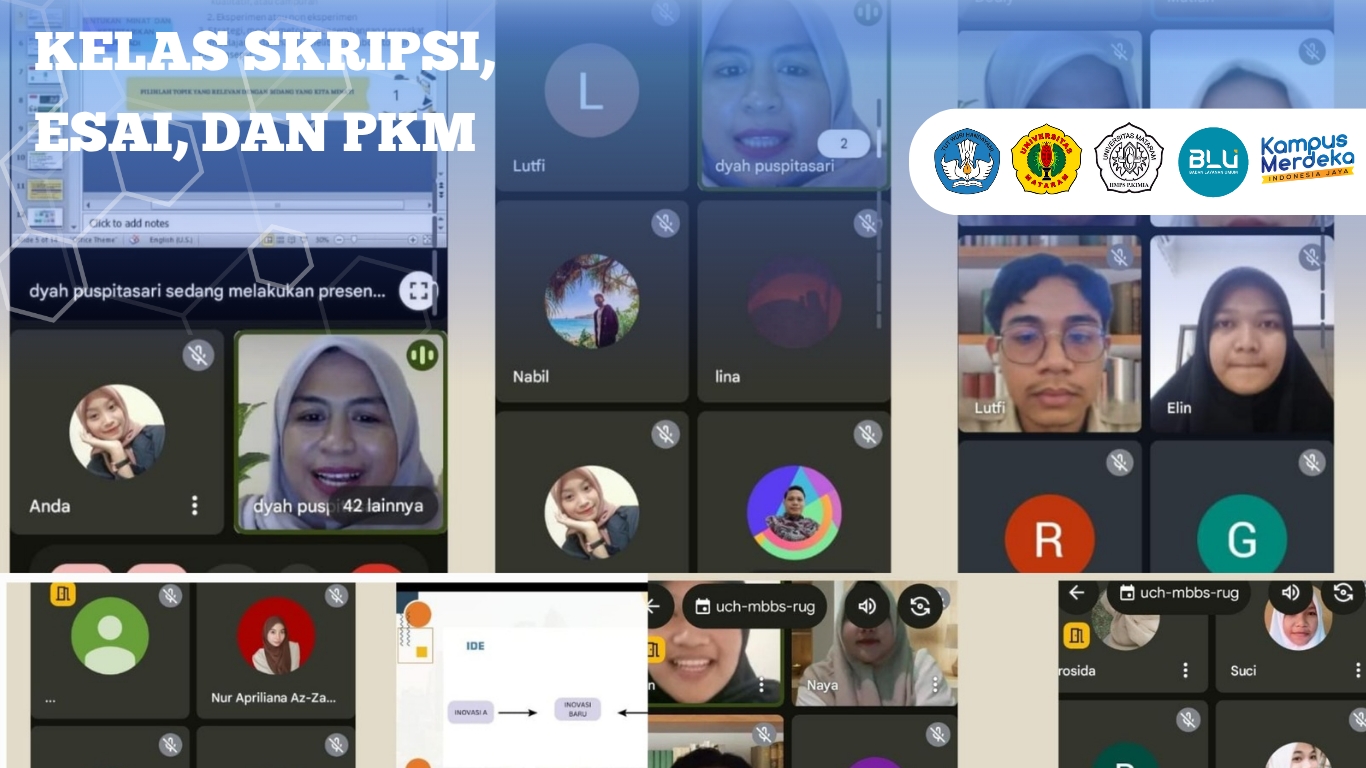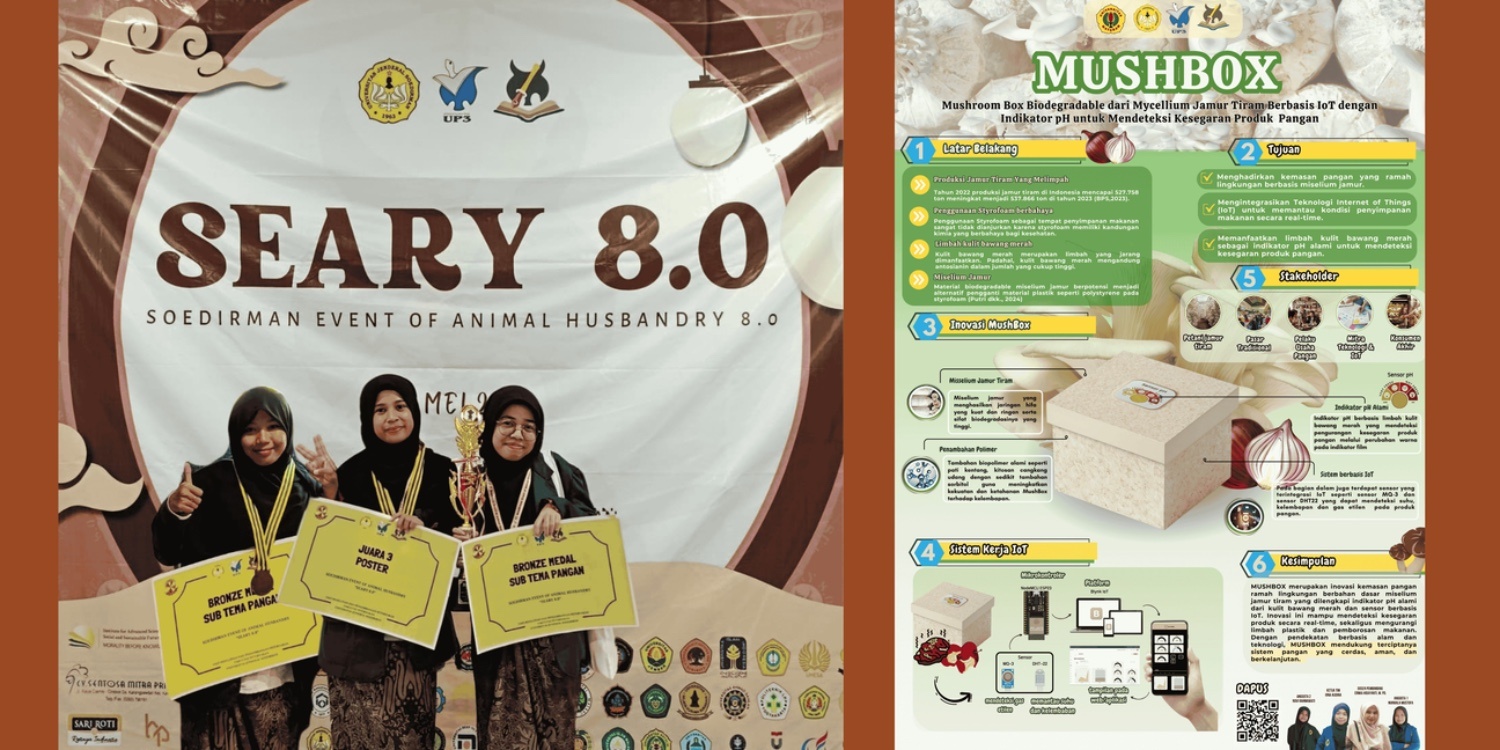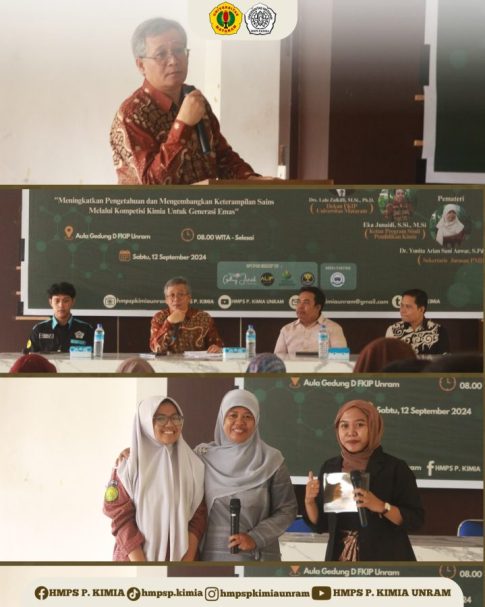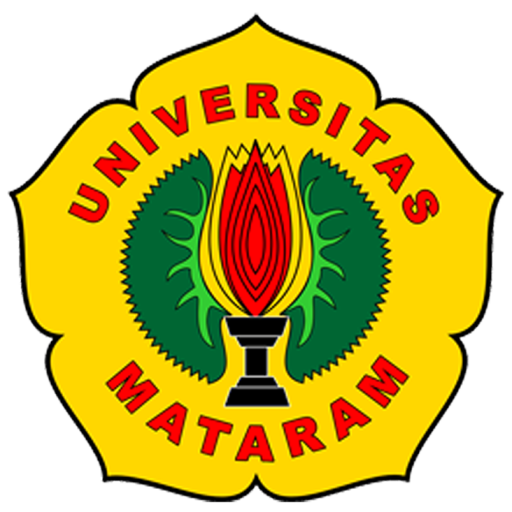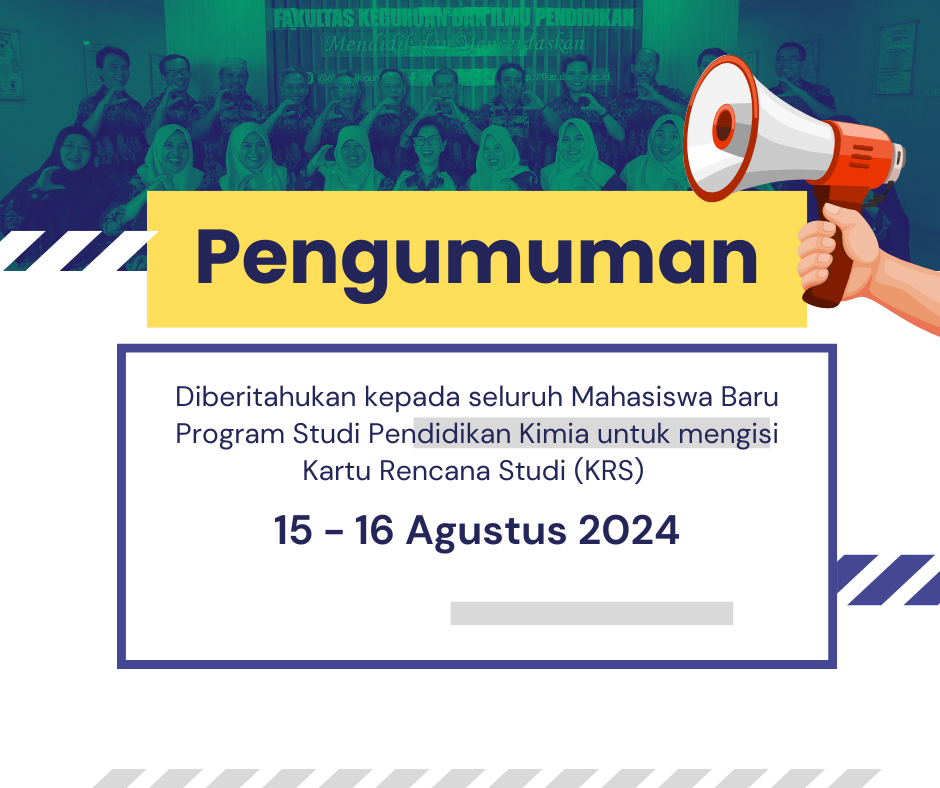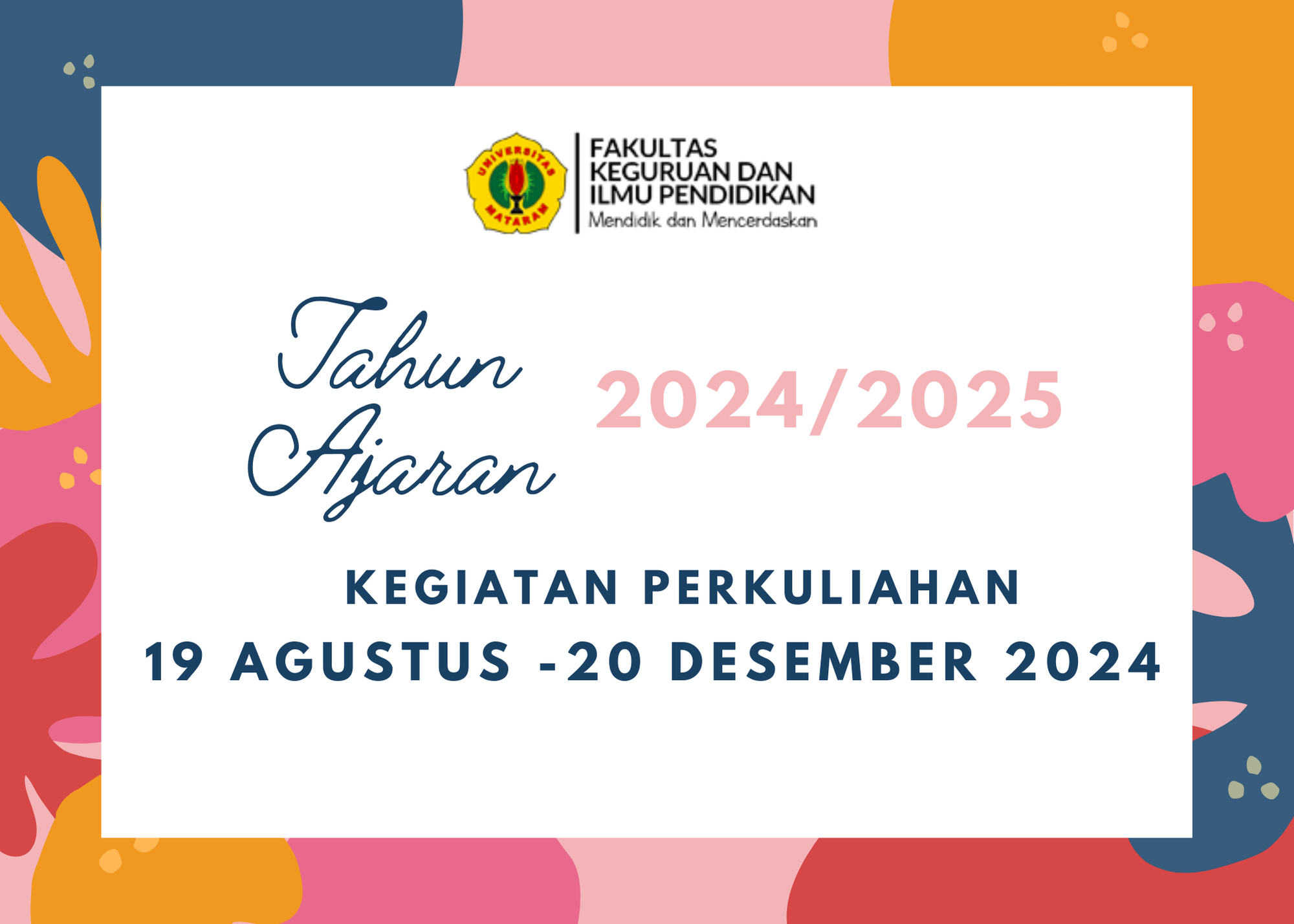Mataram, February 16, 2024 – Education chemistry expert from The University of Queensland, Australia, Prof. Gwendolyn Lawrie, delivered a guest lecture on current issues in chemistry education research and its application in developing countries. During the session, Prof. Lawrie presented five themes on chemistry education research and teaching practices since 2020, including 1) Systems thinking and sustainable thinking in chemistry/green chemistry; 2) Laboratory learning: supporting learning outcomes; 3) Student thinking and reasoning: a deeper understanding of how students learn chemistry (enhancing existing knowledge); 4) Equality, Diversity & Inclusion: expanding access and participation in learning (Universal Design for Learning-UDL); 5) Machine learning & AI (artificial intelligence): the impact of technology in education (legacy of the global pivot to online teaching & learning).
“Successful hybrid and blended learning environments typically require careful instructional scaffolding involving feedback to encourage learner engagement and interaction with content, with their peers and with their teachers,” said Prof. Lawrie, Chief-Editor of the Chemistry Education Research and Practice (CERP) journal, during the guest lecture on Friday (2/16) at the Dean’s Meeting Room III of the FKIP Unram building. Prof. Lawrie emphasized the importance of providing feedback from teachers/professors and peers, which can be formative assessment or self-regulated. Moreover, educators must ensure learning scenarios that facilitate the development of students’ critical thinking skills. Meanwhile, Dr. Saprizal Hadisaputra, the Vice Dean for Academic Affairs at FKIP Unram, who opened the guest lecture, expressed that such activities provide a platform for sharing information and knowledge, especially for future teachers in preparing themselves to design interactive chemistry learning and facilitate students’ thinking development. Additionally, this guest lecture is one of the Chemistry Education Study Program’s initiatives to fulfil the criteria for achieving accreditation excellence. The guest lecture, attended by approximately 80 offline students and 25 professors, as well as more than 30 online participants, proceeded engagingly with an interactive Q&A session moderated by Dr.rer.nat. Lalu Rudyat Telly, M.Si. The guest lecture was accompanied by a sharing session of best practices by a chemistry inspirational teacher from SMKN 1 Kuripan, Mrs. Gramatolina, also an alumna of the Chemistry Education Study Program.
(Lec/Erm)


